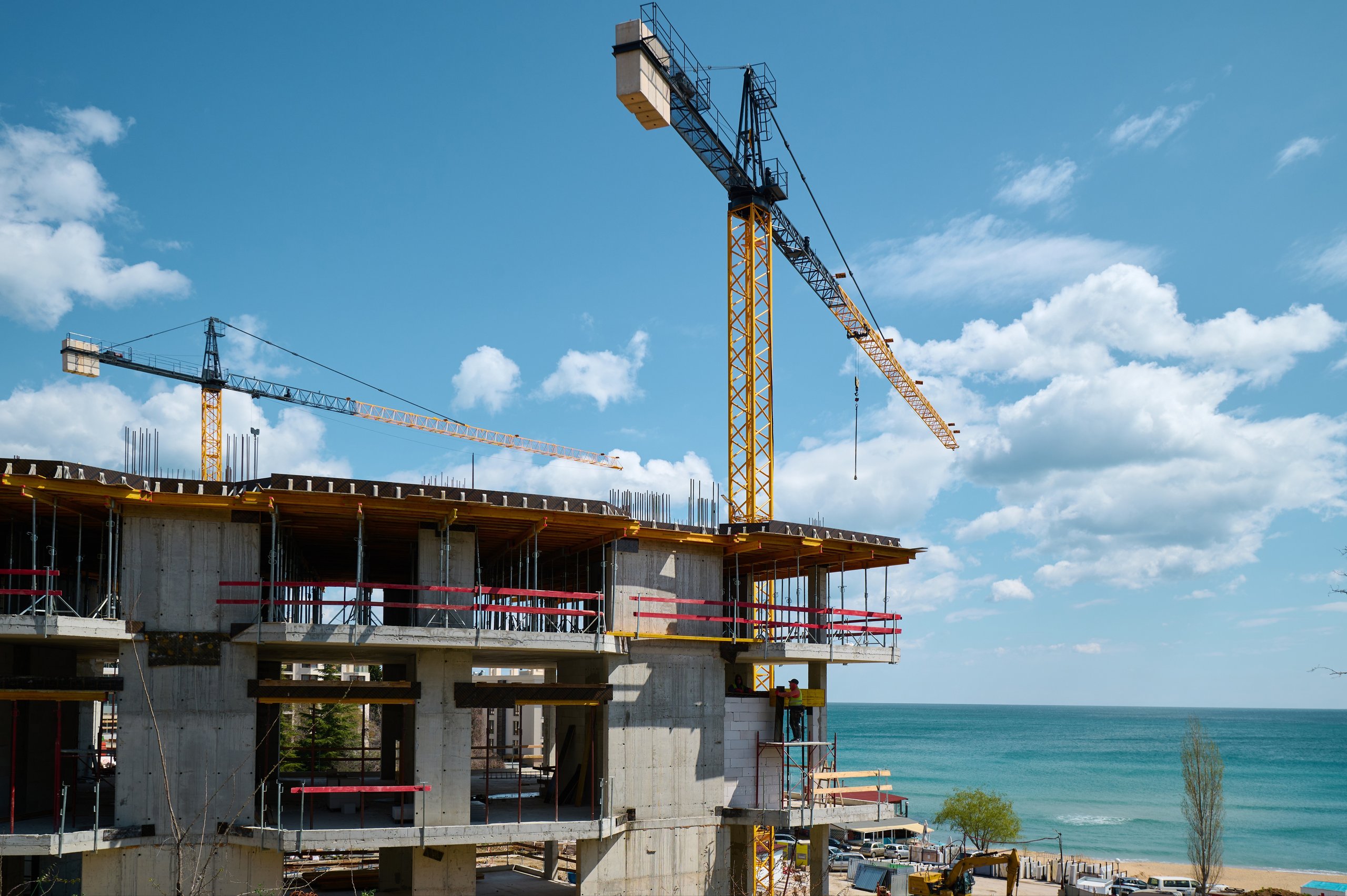When considering buying property in France, it’s essential to understand the various taxes and fees that come into play. From initial purchase taxes to ongoing obligations, being well-informed can help you make smart financial decisions.
This guide outlines the critical aspects of French property taxes, aiming to provide clarity and support for potential property owners.
Contents

French property taxes overview
Purchasing property in France entails various associated taxes and fees. These can often amount to about 10% of the total property price. This figure typically encompasses notary fees, personal taxes and property taxes.
When it comes time to process the sale, notaries will calculate the due taxes. They also ensure they are collected appropriately before notifying the tax office of the new ownership.
For a closer look at the purchase process, claim your free copy of our France Buying Guide:
Download the France Buying Guide
Notary fees explained
In France, notaries play an integral role in property purchases. Appointed by the Minister of Justice, they ensure the legality and smooth execution of transactions, draft contracts, and oversee the transfer of property ownership.
Notary fees are generally the responsibility of the buyer and are determined by government regulations, so they are non-negotiable. Expect to budget between 7-10% of the property price, a portion of which includes tax.
If you’re purchasing a new-build property, the notary fees are reduced to 2-3%. Importantly, new builds also incur VAT at a rate of 20%, but this is usually included in the advertised price as “TTC” (Toutes Taxes Comprises).

Ongoing property taxes
In France, homeowners should be aware of two significant ongoing property taxes: the Taxe Foncière and the Taxe d’Habitation.
Taxe Foncière
Taxe foncière is an annual property tax payable by all property owners in France, regardless of residency. It is due each October and is charged to the individual listed on the title deed as of 1 January of that year. This applies to all types of property – residential, commercial, and industrial.
The amount is determined by the local council and is based on factors such as the property’s location, land area, size, and condition. Rates vary across regions, as revenue from this tax funds local public services at both the commune and departmental level. In many areas, the charge also includes a waste collection fee.
Following your initial full payment – which may be requested up to a year after purchase – you can opt to pay monthly by direct debit through your local tax office, with no additional fees. This can help with budgeting, particularly for second-home owners.
Late payment may result in a penalty of up to 15%. Your notaire typically informs the tax office upon completion of your purchase, but it’s advisable to confirm that registration has been completed to avoid delays or missed notices.
Taxe d’Habitation
Taxe d’habitation is a local residence tax that was officially abolished for all primary residences in France as of 1 January 2023. However, it still applies to second homes and associated structures such as garages and outbuildings. Owners of secondary residences must also now declare these properties to the tax authorities.
This tax is assessed annually on furnished, habitable properties based on occupancy as of 1 January each year. For rental properties, the person living in the property on that date is responsible for payment, not the owner. Taxe d’habitation is typically payable in November.
The amount is calculated using the cadastral rental value of the property and its dependencies, with rates set by the local municipality. These vary widely across France and can significantly impact the final tax amount.
Exemptions are possible if a property is genuinely uninhabitable, but the process is strict and must be verified by local authorities. A property being vacant or simply under renovation is not usually enough to qualify. Owners seeking an exemption should contact their local tax office early to understand the documentation required.

Personal tax considerations
Becoming a tax resident in France depends on certain criteria, such as spending over 183 days in the country or having your primary residence or principal employment in France. Failure to register as a tax resident upon meeting these conditions can result in penalties.
There are three primary categories of personal taxes: the French income tax (impôt sur le revenu), social security contributions, and VAT (taxe sur la valeur ajoutée).
French income tax (impôt sur le revenu)
Income tax in France is assessed on income earned in the previous calendar year and declared in the current year. In 2025, for example, you’ll file your return based on income earned in 2024.
Since January 2019, France has operated a PAYE (Pay As You Earn) system, with tax withheld at source and applied to household income rather than individual earnings. While the system is automatic for most salaried residents, anyone living in France must still submit a personal income tax declaration each spring – including retirees, business owners, and foreign residents.
Tax residents are taxed on their worldwide income, and the declaration, known as Impôt sur le revenu, reflects the total income of the household. This includes all sources – employment, pensions, rental income, dividends, and more. The French tax year runs from 1 January to 31 December, and declarations open in April, with deadlines in May or June depending on your region.
If you live outside France but earn rental income from French property, you are also subject to Impôt sur le revenu and must file an annual return, typically due at the same time as residents. First-time declarations must be submitted on paper via your local tax office; subsequent ones can be completed online.
As of 2023 (the most recently published bands), the income tax rates are as follows:
| Income band (€) | Tax rate |
|---|---|
| 0 – 11,497 | 0% |
| 11,498 – 29,315 | 11% |
| 29,316 – 83,823 | 30% |
| 83,824 – 189,294 | 41% |
| 189,294 and above | 45% |
Because income tax in France is based on household composition and specific deductions, it is advisable to seek guidance from a tax adviser with expertise in the French system – especially if you have cross-border income or complex assets.
VAT (TVA)
The VAT rate in France is 20% and is generally charged on most goods and services. Individuals running a business should consult a tax advisor to understand potential obligations regarding VAT.

Understanding wealth tax
If your net real estate assets in France exceed €1,300,000 as of January 1, you are liable for wealth tax (Impôt sur la Fortune Immobilière, or IFI). A tax rate of 0.5% to 1.5% is applied, depending on your total net taxable wealth. It’s crucial to note that this tax is distinct from capital gains tax, as it assesses long-term assets rather than profits from property sales.
Taxes on selling property
When selling a secondary residence in France, homeowners must account for capital gains tax, set at 19% in addition to social contributions of 17.2%. Calculating this tax can be intricate, as the amount owed is based on the difference between the purchase price and selling price, including the cost of any renovations. Retaining receipts for any registered work done on the property is essential for a successful calculation.
Tax exemptions and reductions
Some new-build properties may be exempt from taxes like the Taxe d’Habitation and Taxe Foncière for their initial years. Additionally, it’s feasible to secure reductions for individuals over 75 or those with disabilities if the property is their primary residence. For exemptions, it’s best to consult your local tax office for guidance.
The importance of professional advice about French property taxes
Tax regulations in France can be complex and frequently updated, making it wise to seek professional guidance when buying, owning, or selling property. Ensure that any tax advisor you consult is licensed to operate in France as local laws may differ substantially from those in your home country.
With solid planning and professional insights, you can navigate French property taxes effectively, ensuring that your investment remains a smart financial choice.
Still exploring your options? Browse our curated selection of Property for sale in France and find homes that match your lifestyle and financial goals. From charming village houses to spacious rural retreats, there’s something for every buyer.
Want to know more about where to buy property in France, or dive deeper into how to buy property in France? Explore our expert guides to navigate the process with confidence and clarity.
FAQs about French property taxes
Yes, if you own a second home. Taxe Foncière applies to all property owners. Taxe d’Habitation applies to second homes even though it has been abolished for primary residences.
You’ll typically pay notary fees (which include various taxes and charges), VAT for new-builds, and property transfer taxes. These can total 7–10% of the purchase price for existing homes.
Yes. Non-residents must still pay local property taxes. Plus, rental income from a French property must be declared to French tax authorities annually.
Yes. If your net real estate assets in France exceed €1.3 million, you may be liable for the Impôt sur la Fortune Immobilière (IFI), which applies on a sliding scale from 0.5% to 1.5%.









